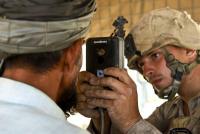-
REAL IDSecurity Theater REALized and Flying without REAL ID
After multiple delays of the REAL ID Act of 2005 and its updated counterpart, the REAL ID Modernization Act, in the United States, the May 7th deadline of REAL ID enforcement has finally arrived. Does this move our security forward in the skies?
-
-
DIGITAL IDENTITYCollaborative Research Effort on Digital Identity to Support Secure Delivery of Public Benefits
NIST has launched a collaborative project to adapt NIST’s digital identity guidelines to support public benefits programs, such as those designed to help beneficiaries pay for food, housing, medical and other basic living expenses.
-
-
MONSTERSWhy the Search for the Loch Ness Monster (and Other Beasts) Continues 90 Years After That First Blurry Photograph
It’s 90 years since Hugh Gray, in April 1933, took his blurry picture — and the beginning of the obsession with finding the Loch Ness monster. As a paleobiologist, I want to explore whether the type of monster we believe Nessy to be could exist and if we should continue looking.
-
-
Face recognitionFace Masks’ Effect on Face Recognition Software
Now that so many of us are covering our faces to help reduce the spread of COVID-19, how well do face recognition algorithms identify people wearing masks? The answer, according to a preliminary NIST study), is with great difficulty. Algorithms created before the pandemic generally perform less accurately with digitally masked faces.
-
-
Big Data & privacyKeeping Big Data safe
NIST has announced the Unlinkable Data Challenge, created to help the public safety community conduct research using data gathered with personal digital devices and taken from large databases such as driver’s license and health care records. Much of this data includes personal information that can be used to identify its source. Exposing this data risks those individuals’ privacy, but the inability to share it impedes research in many fields, including thwarting crime, fighting fires and slowing the spread of epidemics.
-
-
SurveillanceHalf of American adults are in a little regulated police face recognition database
Half of American adults — more than 117 million people — are in a law enforcement face recognition network, according to a report. Of the fifty-two government agencies that acknowledged using face recognition, only one obtained legislative approval for its use and only one agency provided evidence that it audited officers’ face recognition searches for misuse. Not one agency required warrants, and many agencies did not even require an officer to suspect someone of committing a crime before using face recognition to identify her.
-
-
Vetting & citizenshipMore than 800 ineligible individuals granted U.S. citizenship owing to incomplete fingerprint records
U.S. Citizenship and Immigration Services (USCIS) granted U.S. citizenship to at least 858 individuals from special interest countries — individuals who had been ordered deported or removed under another name. DHS IG says that this happened because neither the digital fingerprint repository at DHS nor the repository at the Federal Bureau of Investigation (FBI) contains all old fingerprint records of individuals previously deported. Currently, about 148,000 fingerprint records of aliens from special interest countries who had final deportation orders or who are criminals or fugitives have yet to be digitized.
-
-
TerrorismU.K. to destroy biometric information of 45 terror suspects due to botched paperwork
British security agencies will have to destroy fingerprints and DNA of forty-five terror suspects because the police retained the biometric samples longer than the law allows. The law does allow the police to keep biometric information of terrorism suspects indefinitely, but certain paperwork must be completed within a certain period of time to allow that, and if the paperwork is not completed, the samples must be destroyed. A new report reveals that Britain holds biometric information and materials on nearly 8,000 suspects.
-
-
RefugeesNew biometric measures to identify, track refugees

Refugees applying to come to the United States go through several different security measures aiming to make sure that they who they say they are, and that they are involved with terror organizations or criminal gangs. The security screening includes detailed interviews, three levels of background checks, three fingerprint screenings, contagious disease screening, and cultural orientation. The United States has plans in the works for additional biometric measures, including iris scanning and rapid-turnaround DNA testing.
-
-
European securityParis attacks expose weaknesses in Europe’s security structure

The 13 November attacks in Paris offered a painful demonstration of Europe’s security loopholes which the terrorists exploited to their advantage. The attacks should serve as a wake-up call to Europeans that the continental security structure, built in another era, is no longer sufficient and needs to be adapted to new circumstances. Whether or not such adaptations can be made, and made in time before the terrorists decide to launch another attack, is an open question.
-
-
BiometricsImproved performance of facial recognition software
Who is that stranger in your social media photo? A click on the face reveals the name in seconds, almost as soon as you can identify your best friend. While that handy app is not quite ready for your smart phone, researchers are racing to develop reliable methods to match one person’s photo from millions of images for a variety of applications.
-
-
BiometricsFlorida mulling banning school collection of students’ biometric information
Some school districts in Florida, including Polk County and Pinellas County, are using scanners to collect fingerprints and hands, eyes, and voice characteristics from students. Pinellas County school district allows students to use palm scans instead of cash to pay for meals in the cafeteria. The collection of students’ biometric information has alarmed many parents who are concerned that students’ identity or personal records may be stolen or sold to private companies. Florida state legislators are debating a proposal which would stop school districts from collecting biometric information from students.
-
-
Record sharingUpdated solution allows quick, secure information sharing
Visual Alert 2 enables law enforcement agencies to get real-time access to police records through Pennsylvania’s Law Enforcement Justice Information System (LEJIS) and other authorized information sharing networks while the department maintains secure control of the information it shares
-
-
Olympic biometricsU.K. officials collecting biometric data for all Olympic athletes
As athletes train for this summer’s Olympic Games, having their fingerprints and face-scans taken by U.K. officials will be part of their regiment
-
-
DNA databaseLaw enforcement supports N.Y. DNA database expansion
A growing number of New York law enforcement officials have backed Governor Andrew Cuomo’s proposal to expand the state’s DNA Databank
-
- All
- Regional
- Water
- Biometrics
- Borders/Immig
- Business
- Cybersecurity
- Detection
- Disasters
- Government
- Infrastructure
- International
- Public health
- Public Safety
- Communication interoperabillity
- Emergency services
- Emergency medical services
- Fire
- First response
- IEDs
- Law Enforcement
- Law Enforcement Technology
- Military technology
- Nonlethal weapons
- Nuclear weapons
- Personal protection equipment
- Police
- Notification /alert systems
- Situational awareness
- Weapons systems
- Sci-Tech
- Sector Reports
- Surveillance
- Transportation
Advertising & Marketing: advertise@newswirepubs.com
Editorial: editor@newswirepubs.com
General: info@newswirepubs.com
2010-2011 © News Wire Publications, LLC News Wire Publications, LLC
220 Old Country Road | Suite 200 | Mineola | New York | 11501
Permissions and Policies
Editorial: editor@newswirepubs.com
General: info@newswirepubs.com
2010-2011 © News Wire Publications, LLC News Wire Publications, LLC
220 Old Country Road | Suite 200 | Mineola | New York | 11501
Permissions and Policies
